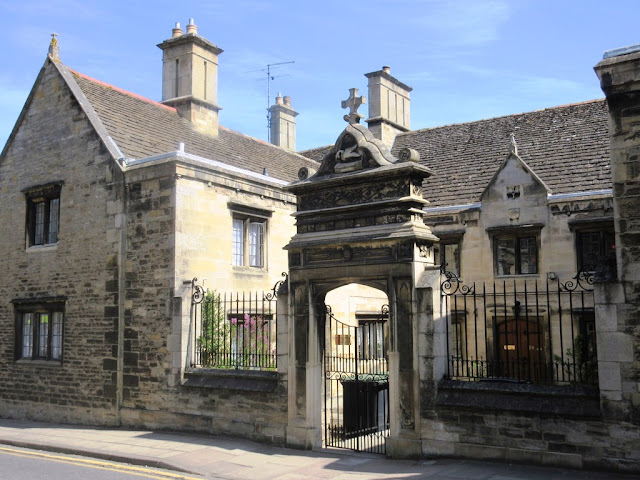Collecting folklore was all the rage in Victorian England. Although there were occasional collectors of ‘popular antiquities’ in the 17th and 18th centuries (John Aubrey is perhaps the most famous example), it was not until after William Thoms coined the word ‘folklore’ in 1846 that books dedicated to folk beliefs, stories and customs became popular.
The foundation of the Folklore Society in 1878 inaugurated the golden age of English folklore collection, which lasted up to the outbreak of the First World War in 1914. As the progress of technological innovation and social change intensified, so too did fascination with England’s vanishing rural lore. Folklore collection was an activist form of nostalgia which engaged the interest of everyone from learned scholars and dilettantish amateurs to hack journalists and the proprietors of local newspapers.
The Victorian folklore collectors were a strikingly diverse group, compared with authors of other kinds of literature. The Folklore Society struggled hard to turn folklore into an academic discipline, even a ‘science’, but this effort has never really succeeded.
Folklore remained (and, to a large extent, remains to this day) the domain of enthusiastic amateurs of all social classes. Some folklorists were aristocrats or members of the landed gentry, who sought to gather up the folklore of their tenants from a great height. But one of the earliest serious collectors of local folklore was the poet John Clare, who began life as a rural labourer in Northamptonshire like the people whose songs and stories he collected.
 Furthermore, many of the early folklore collectors were women, since the recording of traditional lore was a form of writing considered acceptable for female authors. These folklore collectors gathered stories from other women, producing a form of literature that almost uniquely gave voices to rural working class women.
Furthermore, many of the early folklore collectors were women, since the recording of traditional lore was a form of writing considered acceptable for female authors. These folklore collectors gathered stories from other women, producing a form of literature that almost uniquely gave voices to rural working class women.The work of many Victorian folklore collectors, especially those who were working class or female, remains obscure. Less well-off or well-connected folklorists struggled to get their writing into print, or were only published in local newspapers. Others fell victim to publishers who did not understand how to market or promote books about folklore, or to journalistic plagiarists who appropriated the hard work of folklore collectors as their own.
The first obscure Victorian folklorist whom I had the privilege of bringing to light was Charles Dack (1847–c. 1920), a self-taught railway clerk who became volunteer curator of Peterborough Museum. Dack was able to get a few articles and short pamphlets published, but he simply did not have the financial resources to publish a larger work on the folklore of the Soke of Peterborough.
Some of Dack’s papers were later acquired by Cambridge University Library, and I relied heavily on these to produce my book Peterborough Folklore (shortlisted for the 2018 Katharine Briggs Folklore Award), which is largely a tribute to Dack’s fieldwork.
My book Suffolk Fairylore, published in 2018, similarly sought to excavate the work of some forgotten folklorists, notably the sisters Anna and Lois Fison, who were responsible for recording three folktales they heard from their old nurse in Barningham, Suffolk growing up in the 1830s: ‘Brother Mike’, ‘Cap o’Rushes’ and ‘Tom Tit Tot’.
A leading member of the Folklore Society, Edward Clodd, soon muscled in and reported ‘Tom Tit Tot’ without attribution to the Fisons; Clodd brought the tale to the attention of European folklorists, and although he later apologised to the Fison sisters, their role as the original collectors of the tales was often erased in subsequent folklore studies.
 Another woman folklorist who suffered plagiarism was Margaret Helen James (1859–1938), a figure so obscure that her identity was not known until 2017. James was a cousin of the famous writer of ghost stories M.R. James. She published only one book, Bogie Tales of East Anglia (1891), a folklore collection that rapidly became very scarce but was extensively plagiarised by a journalist, Morley Adams, in 1914.
Another woman folklorist who suffered plagiarism was Margaret Helen James (1859–1938), a figure so obscure that her identity was not known until 2017. James was a cousin of the famous writer of ghost stories M.R. James. She published only one book, Bogie Tales of East Anglia (1891), a folklore collection that rapidly became very scarce but was extensively plagiarised by a journalist, Morley Adams, in 1914.Margaret James’s Bogie Tales was the earliest book dedicated to the folklore of East Anglia, but her contribution has been entirely overlooked until now because her identity was unknown and much of the folklore she collected has been attributed to Morley Adams. I have recently edited Margaret James’s book, with a critical introduction and notes, so that it can finally be made widely available.
The 19th century’s regional folklorists were remarkable individuals – dedicated, eclectic in their interests, often eccentric and sometimes self-taught. Their writings, both published and unpublished, often remain a treasure-trove still to be uncovered.
The digitisation of local newspapers and Victorian pamphlets, making them searchable, is bringing much lost folklore recording to light, and we are currently living through a golden age of folklore research – not because there is still traditional folklore to be collected (in most cases there is not), but because folklore collected over a hundred years ago is finally emerging from the shadows.
Read more from Francis Young on his website.





















